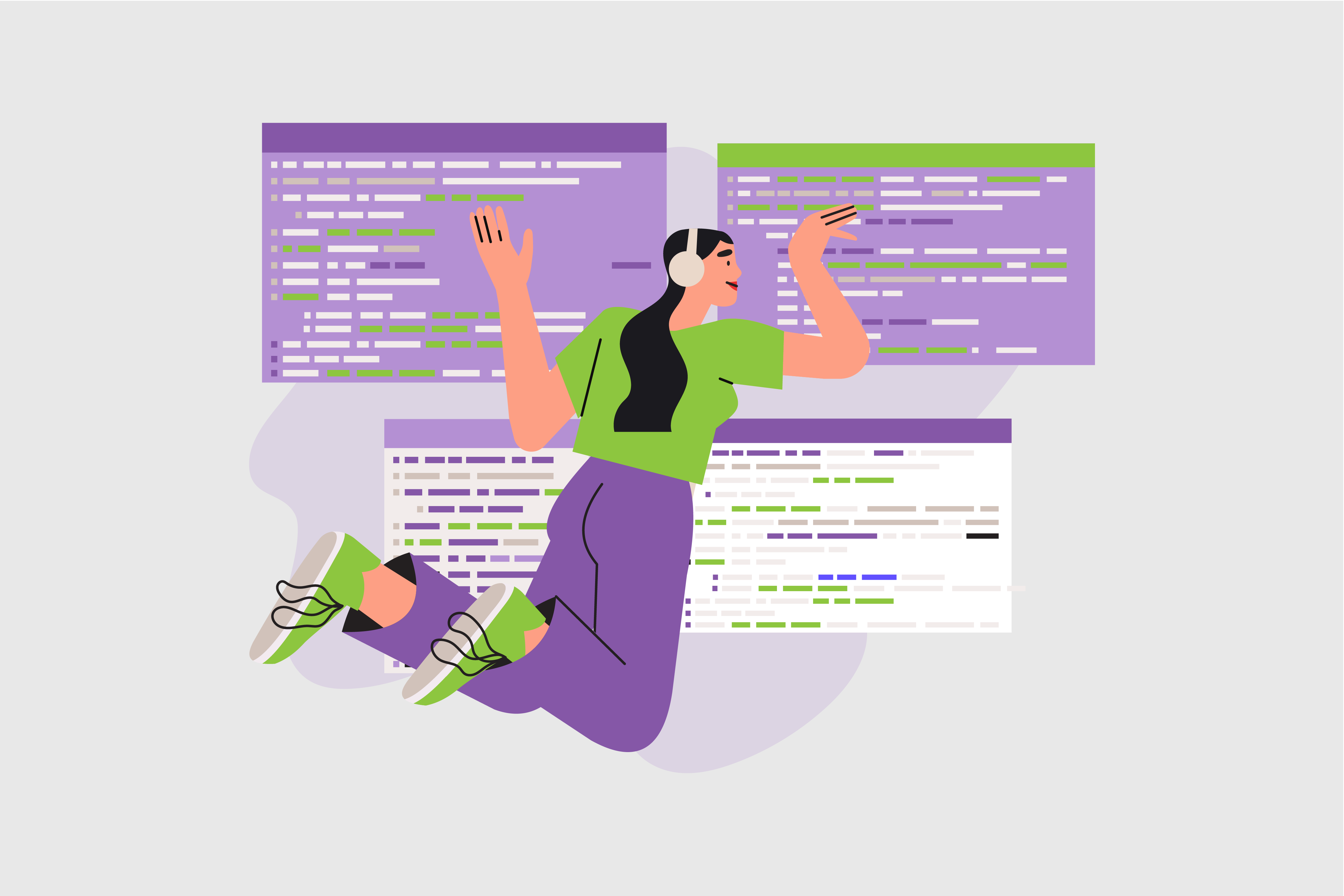How to Become an Executive Assistant: Advice From an EA

Life as an executive assistant is fast-paced, exciting, varied and can bring in some pretty competitive coin. And with no linear career pathway to this role, opportunities to start a job as an EA are in more places than you might think.
An executive assistant works closely with high-level company seniors and executives (sometimes one, sometimes several), providing professional administrative support, and schedule and communication management.
Gone are the days where an office had a secretary whose primary purpose is running around making coffee, answering the phone and taking meeting minutes. Today, the glass ceiling has moved, administration roles have expanded, and more responsibility has been given to these valued team members.
Executive assistants, in particular, have a hand in much more complex activities and are arguably the heroes behind the scenes of a successful business.
We wanted to get the lowdown on how to become an executive assistant and what kind of person is best suited to the role. So we spoke to Stephanie Schumacher — an established executive assistant, about how she entered the job and her hints and tips to a successful career.
How to become an executive assistant
1. Gain some experience
The path to becoming an EA doesn’t follow a standard set of steps and doesn’t require a bachelor’s degree. Different work, life, and educational experiences could have you in a good place to enter the job as an Executive Assistant.
Many executive assistants will have previously held more junior roles in the office such as:
- Office assistant
- Secretary
- Personal assistant
- Administrative assistant
- Team assistant
- Receptionist
If you haven’t worked in a business administration role before, gaining experience in one may be an excellent place to start with a view to making your way up the ladder.
This was true for Stephanie. While working as a team assistant at Deloitte, she gained valuable admin experience while demonstrating her hunger to take on more.
“Outside of my typical team assistant duties such as supporting a team of EA’s, basic diary management and travel coordination etc, I looked for further responsibilities within the team and even took on parts of an EA role to prove myself.“
Stephanie Schumacher
Executive Assistant, Candlefox
Stephanie goes on to say, “I also volunteered a lot of my time to the business, such as becoming a fire warden, joining charity and support groups, and also attending as many networking events as possible. Sometimes it isn’t about what you know; it’s about who you know.”

Find out how to become an office administrator in New Zealand to get your foot in the door.
2. Undertake training
Like any move into a new role, having a certificate or diploma in administration will make you more prepared for a career as an EA and make you stand out. In addition, the initiative it shows to fine-tune and polish your current skills makes you an attractive prospect to any employer.
Recent research has shown that technical skills, information management and communication skills are crucial requirements looked for by employers these days – even in roles that may not have needed them in the past.
Studying and upskilling can be flexible, and you can spread out the cost. And with modern approaches to learning utilised, upskilling courses are not only more straightforward to navigate, but they are also fun!
Studying courses along the way, Stephanie strengthened her skillset and it helped in her pathway to becoming the EA she is today.
“I don’t necessarily think there is a perfect course for becoming an executive assistant, but furthering your studies with relevant courses can be beneficial! Prior to being an EA, I had studied a Cert 3 in Business, Interior Design and my Real Estate Agent’s Licence,” Stephanie says.
“Whilst in my team/executive assistant roles, I enrolled in as many short courses as possible relating to event management, email and communication, and leadership and management training.”
Stephanie Schumacher
Executive Assistant, Candlefox
Stephanie goes on to say, “I also volunteered a lot of my time to the business, such as becoming a fire warden, joining charity and support groups, and also attending as many networking events as possible. Sometimes it isn’t about what you know; it’s about who you know.”
3. Hone additional executive assistant skills
Another way to up your game is to study other office-related skills, broadening your knowledge base and allowing you to offer more to an organisation. For example:
- Accounting
- Marketing
- HR
Not only will you have additional skills to offer, but learning also gives you added confidence and a feeling of empowerment — helpful when putting yourself out there for a new role.
How much do executive assistants make in New Zealand?

What does an executive assistant do?
An executive assistant job description will vary depending on the organisation they work for.
Your primary focus is the smooth coordination and organisation of senior executives’ day-to-day schedules and administrative duties. You deal with confidential information and are often the link between them and other important stakeholders within the business.
Some typical executive assistant role responsibilities:
- Schedule meetings
- Manage travel and itineraries
- Prepare and proof corporate documents confidentially
- Onboard new staff
- Stakeholder management
- Answer and field phone calls and emails
- Arrange corporate events
- Diary management
- Maintaining filing systems
You have the honour of being the right-hand person to the people at the top, getting handed bags of responsibility, having opportunities to prove your value, gaining trust, and being rewarded for it along the way.
Stephanie says building a strong and harmonious relationship with the executives is one of the most rewarding aspects of this role. But she explains that when you dedicate so much of your time to fulfilling the needs of others, it can be easy to forget about your own needs.
“Make sure to prioritise yourself too,” she advises.
“Organising other peoples’ lives does take a toll at times. And take it from me, I often forget to book my own personal appointments or even do my washing. Helping others succeed is super rewarding, but hard to do when you’re burnt out yourself!”
Stephanie Schumacher
Executive Assistant, Candlefox
What are key executive assistant skills?

A career as an executive assistant can be amazing, but it has its challenges. You need to have great interpersonal skills, be open to taking direction from others and have a relatively thick skin. There is also a need to be good at decision making, adaptable and be able to jump from task to task without getting overwhelmed.
Stephanie’s key piece of advice for those looking to become an EA is having time management skills.
“I can’t stress this enough! The life of an EA is constantly changing, and no two days are the same. You need to be on your toes and ready to potentially reschedule an entire day — even a week — at very little notice.
Although it’s overwhelming, it’s nothing that some good old prioritisation (and maybe meditation) can’t fix,” Stephanie says.
Some other key skills you can bring to the role include:
- Excellent communication
- Organisation
- Attention to detail
- Willingness to learn
- Strong IT abilities
- Problem-solving
- Flexibility
Stephanie also says there are some personal traits that have helped her succeed as an executive assistant.
“I’m a control freak by nature (In a good way, I hope). I love to organise and execute EVERYTHING, including calendars, events, travel and all things in between,” she says.
“Aside from that, I’m agile and enjoy working across multiple parts of the business. I’m an approachable, empathetic, and all-around people person. I enjoy chatting with anyone and everyone, no matter the time of day. I love (and have to be) in the know at all times, I don’t mind solving a problem or two, and most importantly, I’m well organised — at least in my professional life.”
Where can a career as an executive assistant take you?
A role as an EA can take you in several career directions. A lot of the time, EAs become assistants to progressively more senior management and top executives in a business.
Another example of career progression is into other areas in the business. You could move into:
- Event management
- Project management
- Human resources
- Office management
- Account management
- And more
Taking an interest and showing initiative in assisting in areas you are keen to progress to will show you are willing to take on new responsibilities as opportunities arise.
“Having been an EA now for almost 5 years, I have been presented with many career opportunities from account management to even project management. However, the most rewarding part of my EA career thus far has been supporting people and improving business culture. Therefore I have decided to pursue a career in human resources.”
Stephanie Schumacher
Executive Assistant, Candlefox
As we’ve learned, there is so much to gain from a career as an EA, and it is a role that will be needed as long as we have companies with seniors to support.
Armed with this information on how to become an executive assistant and insights from a professional EA, you are now in a great position to plan your move into this career.
Polish your skills, upskill in areas you need extra training, and bring your bubbly personality to the job, and you’ll be an attractive prospect for any employer.
Are you ready to take your next step towards becoming an executive assistant?
Browse Results
Administration Pathway Program – Business Administration
Give your admin career a real boost. It’s one of the most highly awarded Administration courses that you could take. This program is for those working in or seeking a Business Administration role. You’ll complete the Certificate in Business Administrat…


Paralegal Secretarial Advanced Course
The ICI paralegal course has been designed in conjunction with government and industry representatives and helps you learn the skills you need to succeed within the field of law quickly and conveniently. Our program is designed for those who seek to en…

Administration Pathway – Medical Reception
Working as a Medical Receptionist can be hugely rewarding. Choosing a medical admin course to secure one of these roles means you are arriving at interviews prepared. Receive a Certificate in Medical Terminology and a Diploma in Business Administration…


Political Science Course
Have a job that makes a difference! There are certain skills you need to become a successful political scientist. The ICI Political Science Program helps you learn them quickly and conveniently. It is sometimes thought that students only do politics to…

Accounts Administration & Payroll Pathway
You’re well on the road to success once you have this course under your belt. You’ll become a professional accounts administrator where you’ll learn how to balance the books and prepare GST returns and business accounts before using the prestigious AAT…

PA & Executive Secretarial Course
Want to advance your secretarial and administrative skills and unlock new career opportunities? Take the next step in your professional development with our online executive secretarial and personal assistant (PA) course. Developed in conjunction with…

Medical Secretary Course
If organisation comes easily to you, a career as a medical secretary could be right for you. Using your keen eye for detail and your amiable personality, you could be the first point of reference for patients in a hospital, doctors’ surgery or other me…

